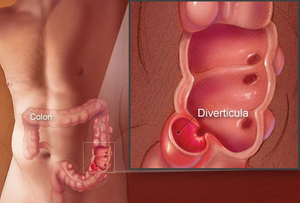
DIVERTICULITIS
Diverticula are bulging and small pouches; they are formed in the linings of a digestive system, found most often in the lower part of the large intestine (colon).
Symptoms:
Risk factors:
Complication:
Diagnosis:
Treatment:
Prevention:
Inflammation, infection, small pouches, digestive tract.